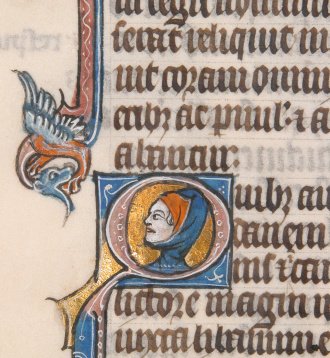Corrections
Cedron, found in John 18:1, is a reference to the brook Kidron (2Samuel 15:23, 2Kings 23:4, etc.) which ran near Jerusalem.
Charran (Acts 7:2, 4), the Biblical city Abraham migrated to after leaving Ur, is called Haran in the Old Testament (Genesis 11:31 - 32). Charran is the Greek form of Haran.
Elias (Matthew 11:14) is the King James Bible Greek spelling of Elijah's name.
Elisabeth (Luke 1:5) is a King James Bible variation of Elizabeth.

Emmanuel (Matthew 1:23), one of the many names and titles attached to Jesus, is a variation of Immanuel (Isaiah 7:14).
Huram (1Chronicles 8:5, etc.) is a reference to King Hiram of Tyre. Hiram was friends with and greatly aided both Kings David and Solomon.
Jehoshua (Numbers 13:16, 1Chronicles 7:27) and Oshea (Numbers 13:8, 16) are referring to Joshua. It was Joshua who led the children of Israel into the Promised Land after the death of Moses.
Jephthae, found in Hebrews 11:32, is Jephthah who was one of Israel's Judges.
Lucas (2Corinthians 13:14 and Philemon 1:24) is the gospel writer Luke.
Marcus (Colossians 4:10, Philemon 1:24, 1Peter 5:13) is the gospel writer Mark (John Mark).
Megiddon (Zechariah 12:11) is the city of Megiddo.
Melchisedec (Hebrews 5:6, 10, 6:20, etc.), which is found solely in the book of Hebrews, refers to the priest named Melchizedek whom Abraham met.
Miletum (2Timothy 4:20) references the city of Miletus.
Phebe (Romans 16:1 - 2) is a reference to a female Christian named Phoebe.
Phenice, found in Acts 27:12, is the King James Bible spelling of the Greek word Phoenix used to denote a city on the island of Crete. Two other occurrences of Phenice (Acts 11:19, 15:3), however, should be translated as the word Phoenicia.
Phenicia, found in Acts 21:2, is the King James Bible spelling of Phoenicia.
Prisca (2Timothy 4:19) is referring to a woman named Priscilla who, along with her husband Aquila, greatly aided the Apostle Paul.
Rachab, found in Matthew 1:5, is a reference to Rahab the harlot.
Rama, found in Matthew 2:18, should be spelled Ramah as it is found in the Old Testament (Joshua 18:25, Jeremiah 31:15, etc.).
Silvanus (2Corinthians 1:19, 1Thessalonians 1:1, etc.) is a reference to Silas who accompanied the Apostle Paul on his second missionary journey.
Sion (Psalm 65:1, Matthew 21:5, etc.), in almost all places in the KJV Bible, refers to Zion.
Timotheus (Acts 16:1, 17:14 - 15, etc.) is a variation of Timothy, the Apostle Paul's friend and fellow evangelist.
Urias, found in Matthew 1:6, is the Greek form of the name Uriah (2Samuel 11:3). Uriah the Hittite, one of King David's mighty men, was set up to die in battle so that the king could have his beautiful wife Bathsheba.
Letter Insertion
Several King James Bible New Testament location names (Ituraea, Galilaean, Judaea) and personal names (Arimathaea, Alphaeus, Hymenaeus, Lebbaeus, Thaddaeus, Zacchaeus) are spelled with the letter "a" before the letter "e." A correct spelling of these words can be achieved simply by removing this "a" before "e" (Iturea, Arimathea, Zaccheus, etc.).